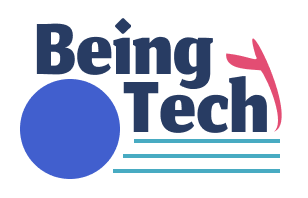Google Extends Election Policies to Generative AI Products: What You Need to Know
As the election season ramps up, Google is taking significant steps to ensure that its generative AI products are aligned with its existing election policies. This move marks a crucial moment in the tech industry’s approach to handling misinformation and ensuring the integrity of information around elections. In this blog post, we’ll delve into what these new protections entail, why they matter, and what it means for users and the broader AI landscape. For all the latest updates on tech policies and AI developments, visit www.beingtechy.online.
Google’s Expanded Election Policies for AI Products
1. Extension of Election Policies
On Friday, Google announced it would extend its election-related policies, previously applied to its search and YouTube products, to a broader array of its generative AI tools. This includes AI features such as Search AI Overviews, YouTube AI-generated summaries for Live Chat, Gems, and image generation in Gemini. This extension reflects a growing awareness of the role that AI plays in shaping public perception during election periods.
2. Why This Matters
The extension of these policies is significant for several reasons. Previously, restrictions were in place for some Google AI products like Search Generative Experience (SGE) and Gemini. However, the new policy rollout means these restrictions are now more comprehensively applied across Google's AI ecosystem. This broad application aims to prevent the spread of misinformation and ensure that election-related topics, including candidates, voting processes, and results, are handled with greater accuracy and responsibility.
3. Google’s Approach to Election Misinformation
Google has stated that its decision to extend these policies is driven by a desire to handle election-related information with utmost care. The company has adopted a cautious approach to ensure that its AI products do not inadvertently contribute to misinformation or confusion around elections. This is particularly relevant as the speed at which generative AI technology is adopted by consumers presents new challenges for managing the accuracy of information.
4. Industry-Wide Implications
The tech industry at large faces growing pressure to regulate AI’s role in elections. With Congress yet to pass specific legislation addressing AI’s impact on elections and federal agencies showing limited action, tech companies like Google are stepping in to fill the gap. This proactive stance by Google aligns with broader industry trends, where companies are adapting their existing election policies to cover new AI experiences. OpenAI, for instance, has also begun adapting its policies in response to similar concerns.
5. The Test of Generative AI During U.S. Election Night
One of the most critical tests for generative AI will come on U.S. election night in November. As voters turn to online platforms for results, the effectiveness of these new policies will be closely scrutinized. The industry’s ability to manage the influx of information and prevent the spread of misleading content will be a significant factor in maintaining public trust during this crucial period.
What You Need to Know
1. Scope of New Restrictions
The newly extended restrictions mean that Google’s AI products will now avoid generating or displaying responses related to election-specific topics. This includes:
- Candidates: Information about individual candidates will be subject to restrictions.
- Voting Processes: Details about how to vote, deadlines, and other procedural information will be carefully monitored.
- Election Results: Results will not be shown directly through AI-generated content, reducing the risk of misinformation.
2. User Impact
For users, this means that while Google’s AI products will still provide a wide range of information, there will be tighter controls and restrictions on how election-related content is presented. Users looking for information on these topics will need to rely on official and vetted sources rather than AI-generated summaries or responses.
3. Future Developments
As generative AI continues to evolve, so too will the policies governing its use. Google’s proactive measures set a precedent for how AI can be responsibly integrated into sensitive areas like elections. Keeping an eye on these developments and understanding how AI tools are regulated will be crucial for both consumers and industry observers.
The Big Picture
The extension of election policies to Google’s generative AI products highlights the ongoing efforts to manage misinformation and maintain the integrity of information during critical periods. This move is part of a broader trend in the tech industry to address the unique challenges posed by AI technologies in the realm of public information and elections.
For more detailed updates and analysis on how AI is shaping the future of technology and its impact on elections, visit www.beingtechy.online. Our team provides comprehensive coverage and expert insights into the evolving landscape of AI and its implications for users and society at large.
Conclusion
As election season approaches, Google’s extension of its election policies to include a wider range of AI products represents a crucial step in addressing the challenges of misinformation in the digital age. By implementing these restrictions, Google aims to provide a more reliable and accurate information environment for users during a time of heightened scrutiny and public interest.
Stay informed with the latest updates on AI policies and technology trends by following www.beingtechy.online. Our coverage ensures you stay ahead of the curve on how technology is influencing our world and what it means for the future.

